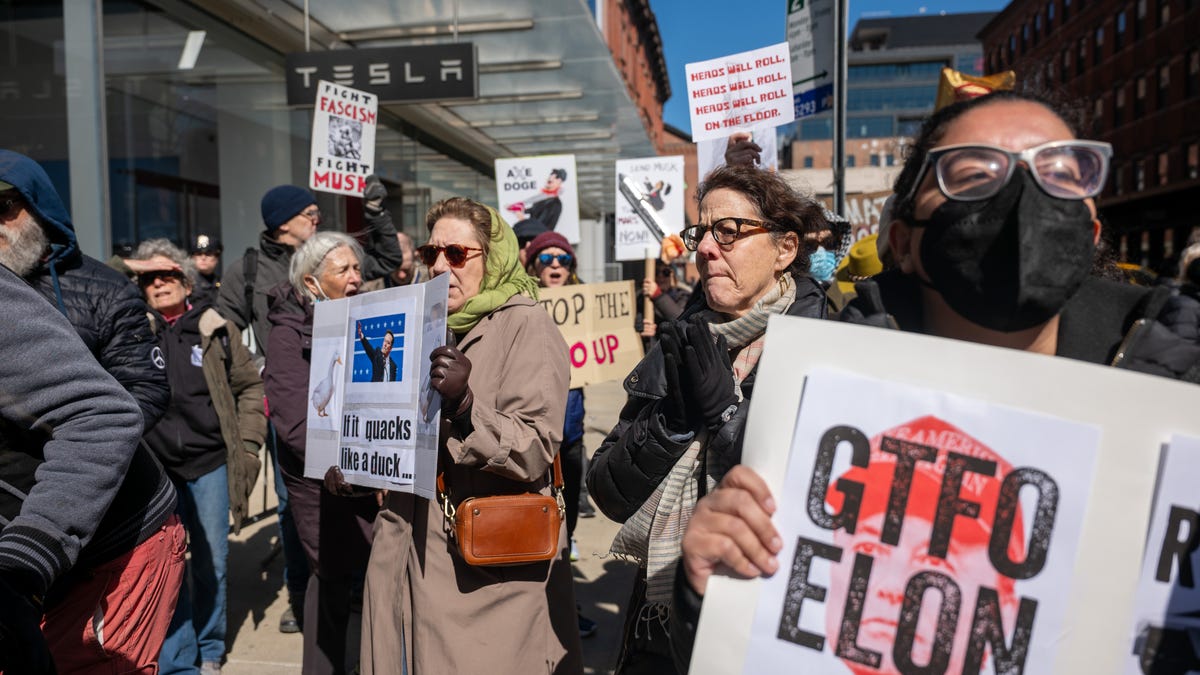
The Shifting Sands of Corporate America: Navigating the Storm of Public Opinion
The business world is a battlefield, and lately, Tesla has found itself squarely in the crosshairs. While the company’s innovative electric vehicles have revolutionized the automotive industry, a rising tide of protests—ranging from peaceful demonstrations to more disruptive actions—has cast a shadow over its success. The reasons behind this unrest are multifaceted and complex, weaving together concerns about labor practices, environmental impact, and even the leadership style of CEO Elon Musk himself. This confluence of issues has created a volatile situation, pushing Tesla into the unpredictable currents of public opinion.
These protests aren’t simply fleeting moments of discontent; they represent a deep-seated unease with the company’s trajectory. Some critics point to alleged unfair labor practices, arguing that Tesla’s rapid expansion has come at the cost of worker well-being and fair treatment. Others express concerns about the environmental footprint of lithium mining, a crucial component in the production of electric vehicle batteries. Still others question Tesla’s overall sustainability initiatives, arguing that the company’s commitment to environmental responsibility falls short of its public image.
Beyond these operational concerns, Elon Musk’s highly visible and often controversial public persona adds another layer of complexity. His outspoken nature, combined with occasional erratic behavior, has alienated some segments of the population, fueling the flames of anti-Tesla sentiment. This has translated into boycotts, negative media coverage, and the very public demonstrations that are increasingly threatening the company’s stability.
The current political climate adds further fuel to the fire. While some see Tesla’s innovative technologies as a vital step toward a greener future, others express concerns about the company’s influence and its impact on established industries. This creates a fertile ground for political maneuvering, and the situation has attracted attention from unexpected quarters.
The involvement of government is a significant development, raising questions about the appropriate role of the state in mediating corporate disputes and protecting businesses from the consequences of negative public perception. Historically, governments have been hesitant to intervene directly in private sector controversies, wary of accusations of favoritism or interference in the free market. However, the scale and intensity of the current protests against Tesla appear to have forced a reassessment of this traditional approach. This intervention, regardless of its motivation or ultimate success, signals a potential shift in the relationship between corporations, the public, and government oversight.
The future of Tesla, therefore, remains uncertain. The company faces a significant challenge in navigating these turbulent waters. Addressing the legitimate concerns of its critics, demonstrating a genuine commitment to ethical labor practices and environmental sustainability, and cultivating a more measured public image will be crucial for regaining public trust. The coming months will be critical in determining whether Tesla can successfully weather this storm, or if it will be irrevocably damaged by the current wave of public disapproval. The company’s response, and the resulting impact on its long-term viability, will serve as a cautionary tale—a stark reminder of the complex interplay between corporate ambition, public perception, and the ever-shifting sands of political influence.



Leave a Reply